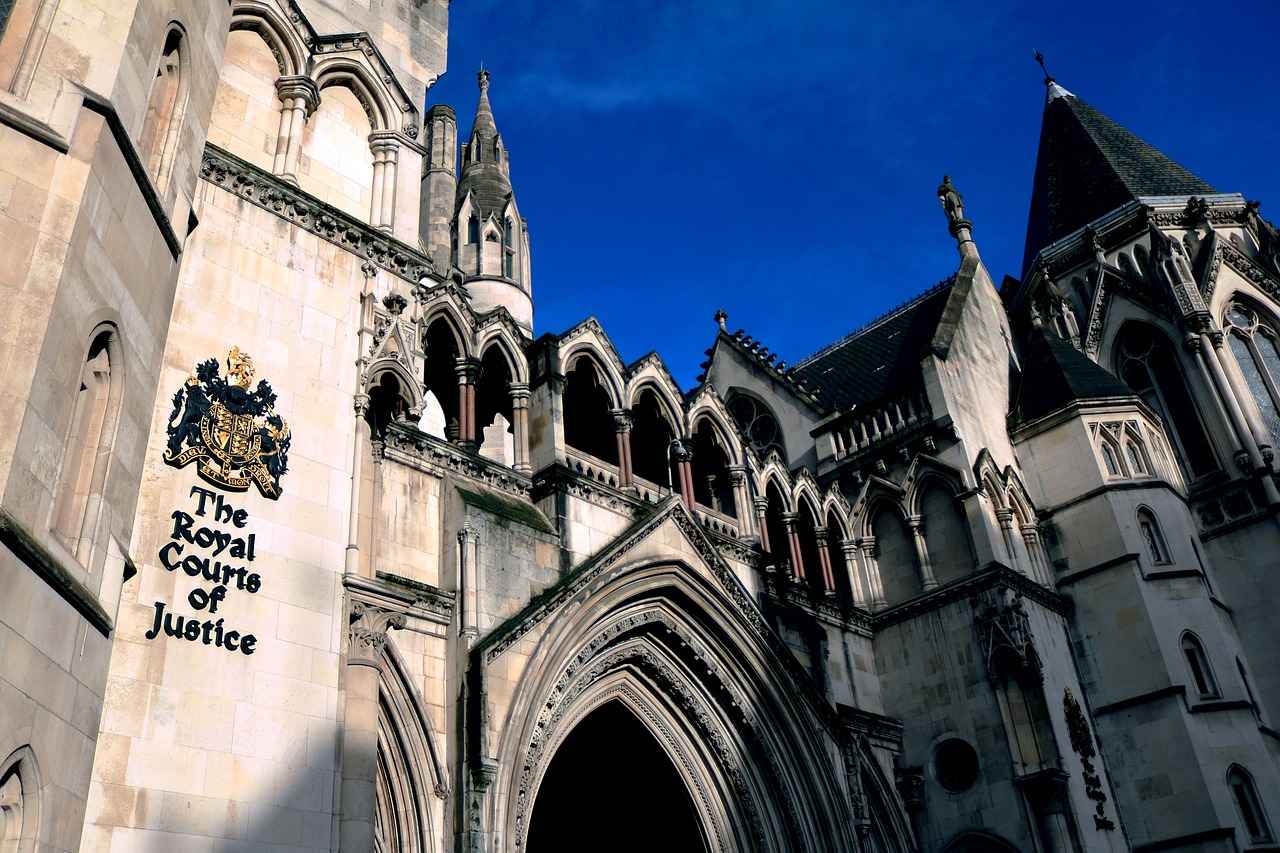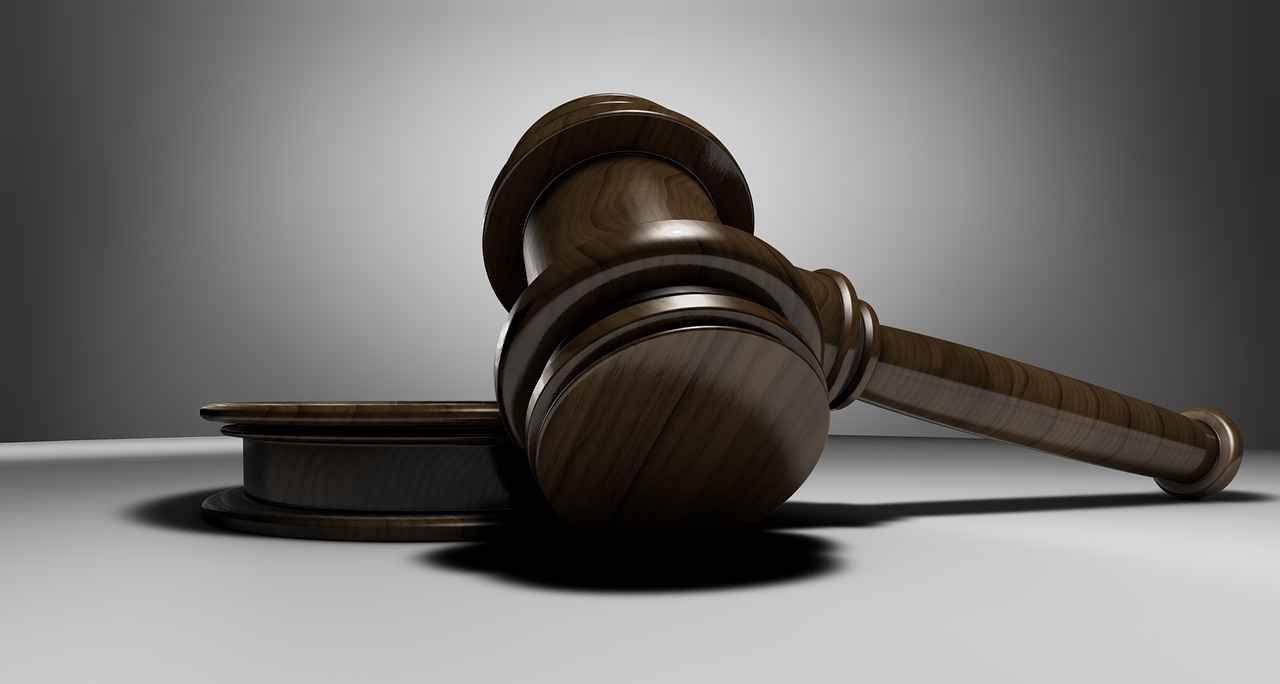This article provides an overview of the most common types of legal cases in the United States, offering valuable insights and expert guidance on how to find qualified lawyers in San Bernardino.
Understanding Common Legal Cases
Legal cases in the U.S. vary widely, impacting individuals and families in profound ways. Some of the most prevalent types of cases include:
- Personal Injury: Claims arising from negligence or intentional harm.
- Medical Malpractice: Involves negligence by healthcare professionals.
- Breach of Contract: Occurs when one party fails to meet their contractual obligations.
- Property Disputes: Involves conflicts over ownership, boundaries, or landlord-tenant issues.
- Defamation: Includes libel and slander cases that can severely impact reputations.
- Employment Disputes: Encompasses wrongful termination and discrimination cases.
- Product Liability: Claims related to harm caused by defective products.
- Wrongful Death: Claims arising from negligence leading to a person’s death.
- Class Action Lawsuits: Allow groups to collectively sue for similar grievances.
- Criminal Defense: Involves defense against charges like theft, drug offenses, and violent crimes.
- Family Law: Covers divorce, child custody, and support issues.
- Bankruptcy: Provides relief from overwhelming debt.
- Intellectual Property Disputes: Involves patents and trademarks.
- Civil Rights Violations: Protects individual freedoms and rights.
Finding Qualified Lawyers
When searching for a lawyer in San Bernardino, consider the following expert-level strategies:
- Research Online Platforms: Websites like Avvo, Martindale-Hubbell, and FindLaw provide directories of attorneys along with client reviews and ratings.
- Check Credentials: Look for lawyers with relevant certifications, memberships in professional organizations, and a strong educational background.
- Evaluate Experience: Assess whether the lawyer has handled cases similar to yours, focusing on their success rates and client testimonials.
- Consult Referrals: Ask friends, family, or colleagues for recommendations, as personal experiences can guide you to trustworthy attorneys.
- Schedule Initial Consultations: Many lawyers offer free consultations. Use this opportunity to discuss your case and gauge their expertise and approach.
Red Flags to Avoid
- Guarantees of Outcomes: Be wary of any attorney who promises guaranteed results, as the legal process is inherently unpredictable.
- Lack of Communication: If a lawyer is difficult to reach or does not respond promptly, it may indicate poor client service.
- Negative Reviews: Pay attention to online reviews and any complaints filed against the attorney.
Conclusion: The Importance of Finding the Right Lawyer
Selecting the right attorney is crucial for effectively navigating legal challenges. By understanding the common types of legal cases and employing strategic methods to find qualified lawyers, individuals can make informed decisions that significantly impact the outcomes of their legal matters.

Understanding Common Legal Cases
In the United States, the legal landscape is vast and complex, encompassing a wide array of cases that can significantly impact individuals and families. This article provides an overview of some of the most prevalent legal cases, including personal injury, medical malpractice, breach of contract, property disputes, and various criminal offenses. Understanding these cases is crucial for anyone seeking legal assistance.
Personal Injury Cases are among the most common types of legal disputes. These cases arise when individuals suffer harm due to the negligence or intentional actions of another party. Victims often seek compensation for medical expenses, lost wages, and emotional distress. Finding a qualified personal injury lawyer involves looking for those with a strong track record in similar cases, positive client reviews, and a history of successful settlements.
Medical Malpractice cases occur when healthcare professionals fail to provide the standard of care, resulting in harm to patients. These cases can be particularly complex, requiring lawyers with specific expertise in medical law. It’s essential to choose attorneys who have successfully handled medical malpractice claims and understand the nuances of healthcare regulations.
Breach of Contract cases arise when one party fails to fulfill their contractual obligations. Individuals involved in such disputes should seek attorneys who specialize in contract law. Evaluating a lawyer’s experience with similar contracts and their success rate in negotiations is critical for achieving a favorable outcome.
Property Disputes, including issues related to ownership and boundaries, can be contentious and complicated. A knowledgeable real estate attorney can help navigate these disputes effectively. In cases involving landlord-tenant issues, it is vital to find lawyers familiar with local laws to ensure fair representation.
Defamation Cases, encompassing both libel and slander, can have severe consequences for individuals’ reputations. Finding an attorney with expertise in media law is crucial for these sensitive cases. Look for lawyers who have successfully handled defamation claims and understand First Amendment rights.
Employment Disputes can include wrongful termination, discrimination, and wage issues. A labor lawyer with a strong background in employment law is essential to navigate these complex matters effectively. Seek attorneys with relevant case experience and positive client testimonials.
Product Liability claims arise when consumers are harmed by defective products. An attorney with experience in consumer protection is essential for pursuing these claims. Look for lawyers who have successfully represented clients in similar cases.
Wrongful Death Cases are sensitive matters that arise from negligence leading to a person’s death. Compassionate and experienced legal representation is crucial in these cases. Seek lawyers with a proven history in handling wrongful death claims, focusing on their ability to navigate the emotional aspects involved.
Class Action Lawsuits allow a group of individuals to sue collectively for similar grievances. It’s important to find a lawyer experienced in class action cases, ensuring they have the resources to manage large-scale litigation effectively.
Criminal Defense Cases cover a wide range of offenses, including theft, drug offenses, and violent crimes. Skilled defense attorneys are essential to navigate the complexities of the legal system. Identify lawyers with substantial experience in criminal law and a history of favorable outcomes in similar cases.
Family Law Cases encompass divorce, child custody, and support issues. An attorney with expertise in family law can help navigate these emotionally charged matters. Seek lawyers who specialize in family law and focus on their approach to negotiation and litigation.
Bankruptcy Cases can provide relief from overwhelming debt. A knowledgeable bankruptcy attorney can guide individuals through the process effectively. Look for lawyers with substantial experience in bankruptcy law, ensuring they understand the nuances of both Chapter 7 and Chapter 13 filings.
Intellectual Property Disputes involve patents and trademarks and require specialized legal knowledge. Finding an intellectual property attorney is essential for protection and enforcement. Seek attorneys with a strong background in intellectual property law.
Civil Rights Violations involve the protection of individual freedoms. A lawyer with expertise in civil rights law can help victims seek justice. Look for lawyers with experience in civil rights litigation, ensuring they are well-versed in relevant laws and precedents.
When searching for legal representation, especially in major metropolitan areas like New York City, Los Angeles, Chicago, and Houston, consider the following methods:
- Use reputable legal directories such as Avvo, FindLaw, or Martindale-Hubbell to find qualified attorneys.
- Check for credentials, such as state bar membership, board certifications, and memberships in professional organizations.
- Read client reviews and testimonials to gauge the attorney’s reputation and success rate.
- Be cautious of red flags, such as lawyers who guarantee outcomes, have numerous complaints, or lack transparency in their fees.
In conclusion, understanding the common legal cases in the U.S. and how to find qualified attorneys is essential for anyone facing legal challenges. By following the guidelines outlined above, individuals can make informed decisions and secure the best possible legal representation.

Personal Injury Cases
are a significant aspect of the legal landscape in the United States, representing claims for damages resulting from negligence or intentional harm. These cases can arise from various situations, including automobile accidents, slip and fall incidents, and workplace injuries. Understanding the intricacies of personal injury law is crucial for individuals seeking to secure fair compensation for their suffering.
When navigating personal injury claims, it is essential to find the right legal representation. Here are some key factors to consider:
- Experience and Specialization: Look for attorneys who specialize in personal injury law. Their expertise in this area will be invaluable in understanding the nuances of your case.
- Track Record: Review the lawyer’s history of successful settlements and verdicts. A strong record can indicate their capability in handling cases similar to yours.
- Client Testimonials: Seek out reviews and testimonials from previous clients. Positive feedback can provide insight into the attorney’s professionalism and effectiveness.
- Initial Consultation: Many personal injury lawyers offer free consultations. Use this opportunity to gauge their approach and assess whether you feel comfortable with them.
In addition to these factors, it is crucial to be aware of potential red flags when selecting a personal injury attorney:
- Unrealistic Promises: Be cautious of lawyers who guarantee specific outcomes. Legal cases can be unpredictable, and no attorney can promise a win.
- Lack of Communication: Ensure that the attorney is responsive and willing to keep you informed throughout the process. Poor communication can lead to misunderstandings and frustration.
- High Pressure Tactics: Avoid lawyers who pressure you into making quick decisions. Take the time to evaluate your options thoroughly.
Understanding the statute of limitations for personal injury cases in your state is also crucial. This law dictates the timeframe within which you must file your claim. Missing this deadline can result in losing your right to seek compensation.
It is advisable to choose a lawyer who works on a contingency fee basis. This means they only get paid if you win your case, aligning their interests with yours and reducing the financial risk for you.
In summary, successfully navigating personal injury claims requires a comprehensive understanding of the legal process and the ability to find qualified legal representation. By focusing on experience, client feedback, and maintaining realistic expectations, individuals can significantly improve their chances of obtaining the compensation they deserve.
Finding Personal Injury Lawyers
When seeking representation in personal injury cases, it is crucial to find attorneys who have demonstrated a strong track record in this specialized field. Here are some key factors to consider during your search:
- Experience: Look for lawyers who have extensive experience specifically in personal injury law. A seasoned attorney will have a deep understanding of the legal nuances and the strategies that work best in these cases.
- Client Reviews: Research online reviews and testimonials from former clients. Websites such as Avvo and Yelp can provide insights into an attorney’s reputation and client satisfaction. Pay attention to the overall rating and specific comments regarding their experience.
- Settlement History: Inquire about the attorney’s past settlements and verdicts. A lawyer with a history of securing favorable settlements for clients is often a good indicator of their effectiveness in negotiations and litigation.
Additionally, consider the following credentials:
- Certifications: Look for attorneys who have certifications from recognized legal organizations, such as the National Board of Trial Advocacy. This indicates a commitment to maintaining high standards in their practice.
- Memberships: Membership in associations like the American Association for Justice or local bar associations can demonstrate an attorney’s dedication to staying current with legal developments in personal injury law.
While searching, be mindful of potential red flags:
- Guarantees: Be wary of attorneys who promise guaranteed outcomes. The legal system is unpredictable, and no lawyer can assure you of a specific result.
- Complaints: Check for any disciplinary actions or complaints filed against the attorney with the state bar association. A history of ethical violations is a significant warning sign.
In summary, finding the right personal injury lawyer involves careful research and consideration of their experience, client feedback, and professional credentials. By focusing on these aspects, you can increase your chances of securing competent legal representation that aligns with your needs.
Credentials to Consider
When searching for a competent personal injury lawyer, it is essential to evaluate their credentials meticulously. One of the most significant aspects to consider is whether the lawyer holds relevant certifications and is a member of respected professional organizations. These affiliations not only signify a lawyer’s dedication to their field but also indicate their commitment to maintaining high ethical standards and staying updated with the latest legal developments.
Many reputable attorneys are members of organizations such as the American Bar Association (ABA), the American Association for Justice (AAJ), or state-specific bar associations. Membership in these organizations often requires adherence to strict guidelines, ongoing education, and a commitment to professional conduct, which can be a reassuring sign for potential clients.
Moreover, look for lawyers who have obtained specialized certifications in personal injury law. For instance, some attorneys may be certified as trial lawyers or have received recognition from the National Board of Trial Advocacy. Such certifications indicate that the lawyer has undergone rigorous testing and has demonstrated a high level of competence in their area of practice.
In addition to certifications, it is also wise to consider the lawyer’s experience in handling personal injury cases. An attorney with a proven track record of success in similar cases can provide valuable insights and strategies tailored to your unique situation. Furthermore, client reviews and testimonials can offer a glimpse into the lawyer’s reputation and the level of satisfaction among their clients.
It is crucial to be aware of potential red flags when hiring a personal injury lawyer. Be cautious of attorneys who make unrealistic promises regarding the outcomes of your case or those who have numerous complaints filed against them. A reputable lawyer will provide a realistic assessment of your case and will not guarantee specific results.
In summary, when seeking a personal injury lawyer, prioritize those with relevant certifications, memberships in professional organizations, and a strong history of successful case outcomes. By doing so, you can increase your chances of finding a qualified attorney who is dedicated to achieving the best possible results for your case.
Red Flags to Avoid
When seeking legal representation, it is essential to be vigilant and discerning in your choice of attorney. The legal landscape can be complex, and not all lawyers uphold the highest standards of professionalism. Here are some key red flags to watch out for:
- Guaranteed Outcomes: Be wary of lawyers who make unrealistic promises or guarantee specific results. The legal system is inherently unpredictable, and a competent attorney will not assure you of an outcome. Instead, they should provide a realistic assessment of your case based on their experience and the facts at hand.
- High Volume of Complaints: Research the attorney’s background thoroughly. If you find numerous complaints filed against them with the state bar association or other legal bodies, this is a significant red flag. A history of disciplinary actions can indicate a pattern of unethical behavior.
- Lack of Transparency: A trustworthy lawyer should be open about their fees, processes, and the timeline of your case. If an attorney is evasive or unclear when discussing costs or their approach, consider this a warning sign.
- Pressure Tactics: Be cautious of lawyers who pressure you into signing contracts or making quick decisions. A reputable attorney will give you the time and space to make informed choices without undue influence.
- Limited Communication: Effective communication is crucial in any attorney-client relationship. If a lawyer is difficult to reach or does not respond promptly to your inquiries, it may indicate a lack of commitment to your case.
- Unprofessional Behavior: Pay attention to how the lawyer conducts themselves during initial meetings. Unprofessional behavior, such as being late to appointments, being unprepared, or showing disrespect, can reflect their overall work ethic.
- Unfavorable Reviews: While not all reviews are a reflection of an attorney’s capability, a consistent pattern of negative feedback on platforms such as Google, Avvo, or Yelp should raise concerns about their practice.
- Overly Aggressive Marketing: Attorneys who rely heavily on aggressive marketing tactics may prioritize profit over client care. Look for lawyers who focus on building relationships and have a strong reputation in the community.
By being aware of these red flags, you can better navigate the process of finding a qualified lawyer who will represent your interests effectively. Remember, the right attorney should not only have the necessary skills and experience but also exhibit integrity and a genuine commitment to your case.
Medical Malpractice Cases
Medical malpractice is a serious issue that arises when healthcare professionals fail to provide the standard of care expected in their field, leading to harm or injury to patients. This type of negligence can have devastating consequences, making it essential for victims to seek legal representation from a lawyer who specializes in medical law.
When looking for a qualified attorney to handle a medical malpractice case, consider the following key points:
- Specialization: Ensure the lawyer has a proven track record in medical malpractice cases. This specialization is crucial as medical law is complex and requires specific knowledge of both legal and medical standards.
- Experience: Look for attorneys who have successfully handled cases similar to yours. Their experience can provide insight into the nuances of your situation and the likelihood of a favorable outcome.
- Client Reviews: Research client testimonials and reviews to gauge the attorney’s reputation. Positive feedback from former clients can indicate a lawyer’s effectiveness and professionalism.
- Settlement History: Inquire about the lawyer’s history with settlements and verdicts. A strong history of favorable outcomes can be a good indicator of their capability to advocate for your rights.
Additionally, consider the following credentials when evaluating potential medical malpractice lawyers:
- Board Certification: A lawyer who is board-certified in medical malpractice law demonstrates a commitment to excellence and a deep understanding of the field.
- Professional Memberships: Membership in organizations such as the American Association for Justice (AAJ) or state bar associations can indicate a lawyer’s dedication to staying updated on legal developments.
While searching for the right attorney, be wary of red flags that may indicate a lack of professionalism or competence:
- Guaranteed Outcomes: Be cautious of lawyers who promise guaranteed results. Legal cases, especially medical malpractice, can be unpredictable, and no attorney can assure a specific outcome.
- High Volume of Complaints: Check for any complaints filed against the attorney with the state bar association. A history of complaints can be a significant warning sign.
- Lack of Transparency: If a lawyer is unwilling to provide clear information about fees, processes, or their experience, it may be best to look elsewhere.
In metropolitan areas like New York City, Los Angeles, and Chicago, finding the right medical malpractice attorney can be facilitated through various platforms:
- Online Legal Directories: Websites such as Avvo, FindLaw, and Martindale-Hubbell can help you find qualified lawyers in your area, complete with ratings and reviews.
- Referrals: Ask for recommendations from friends, family, or other professionals who may have experience with medical malpractice cases.
- Consultations: Many attorneys offer free initial consultations. Use this opportunity to gauge their expertise and determine if they are the right fit for your case.
In conclusion, navigating a medical malpractice case requires a thorough understanding of both the legal and medical landscapes. By taking the time to research and select an experienced attorney, you can significantly improve your chances of a successful outcome. Remember, the right legal representation can make all the difference in securing the compensation you deserve for the harm you have suffered.

Breach of Contract Cases
are a common occurrence in the legal landscape, arising when one party fails to meet their obligations as outlined in a contract. These situations can lead to significant financial and relational consequences for both parties involved. Understanding the intricacies of breach of contract cases is crucial for anyone who finds themselves in this predicament.
In order to navigate these complex legal waters, it is essential to identify a skilled contract attorney who can provide the necessary guidance and representation. A proficient lawyer will not only understand the legal framework surrounding contracts but also possess the ability to negotiate effectively on your behalf.
Choosing a Contract Lawyer
- When searching for a contract lawyer, prioritize those who specialize in contract law. Their expertise will be invaluable in assessing the specifics of your case.
- Look for attorneys with a proven track record in handling breach of contract cases similar to yours. This includes evaluating their success rate in litigation and negotiation.
Evaluating Experience
- Assess the lawyer’s experience with contracts relevant to your industry. Knowledge of industry-specific norms can significantly influence the outcome of your case.
- Review past client outcomes to gauge the attorney’s effectiveness. Client testimonials and case studies can provide insight into their approach and success.
Credentials to Consider
- Seek attorneys who hold relevant certifications and belong to professional organizations, which indicate their commitment to staying updated on legal developments.
- Membership in organizations such as the American Bar Association can also be a positive indicator of a lawyer’s credibility.
Red Flags to Avoid
- Be cautious of lawyers who guarantee specific outcomes. Legal cases are inherently unpredictable, and any promise of a guaranteed result should raise concerns.
- Watch out for attorneys with multiple complaints or disciplinary actions against them, as this may indicate a pattern of unprofessional behavior.
In conclusion, when faced with a breach of contract case, it is imperative to find a qualified attorney who can advocate for your rights. By focusing on specialization, experience, credentials, and potential red flags, individuals can make informed decisions that will significantly impact the resolution of their legal issues.
Choosing a Contract Lawyer
When it comes to , it’s essential to find someone who not only specializes in contract law but also has a proven track record of successful litigation or negotiation in cases similar to yours. Here are some critical steps and considerations to help you make an informed decision:
- Specialization: Look for attorneys who focus specifically on contract law. This specialization ensures they are well-versed in the nuances and complexities of contracts, which can significantly impact the outcome of your case.
- Experience: Evaluate the attorney’s experience in handling cases that resemble your situation. For example, if your case involves business contracts, seek lawyers who have successfully dealt with similar business-related disputes.
- Track Record: Investigate the lawyer’s history of litigation and negotiation outcomes. An attorney with a strong history of favorable settlements or verdicts can be a promising candidate.
- Client Testimonials: Read reviews and testimonials from previous clients. This feedback can provide valuable insights into the attorney’s communication style, effectiveness, and overall client satisfaction.
- Professional Affiliations: Check if the attorney is a member of recognized legal associations or has certifications in contract law. This can indicate their commitment to staying updated with legal standards and practices.
- Initial Consultation: Many attorneys offer a free initial consultation. Use this opportunity to discuss your case and assess the lawyer’s approach and understanding of your needs.
- Clear Communication: Ensure that the attorney communicates clearly and effectively. A good lawyer should be able to explain complex legal terms in a way that you can understand.
- Transparent Fees: Be cautious of attorneys who do not provide clear information about their fee structure. Understanding how you will be charged—whether hourly, flat fee, or contingency—is crucial to avoid unexpected costs.
Additionally, it’s important to watch out for red flags when selecting a contract lawyer:
- Guaranteed Outcomes: Be wary of lawyers who promise guaranteed results. The legal process can be unpredictable, and no attorney can assure a specific outcome.
- High Volume of Cases: If an attorney is handling an overwhelming number of cases, they may not be able to provide the attention and dedication your case deserves.
- Negative Reviews: Pay attention to any consistent negative feedback regarding an attorney’s professionalism, responsiveness, or ethical conduct.
In conclusion, finding the right contract lawyer requires diligence and careful evaluation. By focusing on specialization, experience, and client feedback while being aware of potential red flags, you can significantly improve your chances of securing a competent and trustworthy attorney to represent your interests.
Evaluating Experience
When it comes to evaluating a lawyer’s experience, particularly regarding contracts similar to yours, there are several critical factors to consider. The right attorney can make a significant difference in the outcome of your case, so it is essential to conduct a thorough assessment.
First and foremost, you should examine the lawyer’s specific experience with contracts that align closely with your situation. This includes understanding the nature of the contracts they have previously handled and the industries they have worked in. For instance, if your contract pertains to real estate, seeking a lawyer who has a proven track record in real estate contracts is crucial. Their familiarity with the intricacies of such contracts can provide you with valuable insights and a strategic advantage.
Additionally, consider the lawyer’s industry knowledge. A lawyer who specializes in your field will likely have a deeper understanding of the relevant laws, regulations, and market practices. This expertise can be invaluable, especially in complex cases where industry-specific nuances play a significant role. For example, in technology contracts, an attorney well-versed in intellectual property law would be more adept at addressing potential pitfalls than a general practitioner.
Furthermore, take the time to review past client outcomes. A lawyer’s history of successful resolutions in similar cases can serve as a strong indicator of their capability. Look for testimonials, case studies, or even online reviews that highlight their effectiveness in negotiating or litigating contracts. A solid track record not only reflects their skills but also their commitment to achieving favorable results for their clients.
It is also advisable to inquire about the lawyer’s approach to handling cases. Some lawyers may focus on negotiation and mediation, while others may be more inclined towards litigation. Depending on your needs, you may prefer a lawyer who can navigate both realms effectively. Understanding their strategy can help you gauge whether they align with your expectations and objectives.
Lastly, do not overlook the importance of credentials and professional affiliations. Lawyers who are members of reputable legal organizations or who have received certifications in contract law demonstrate a commitment to their practice and a level of expertise that can be reassuring. These credentials can also provide you with confidence in their ability to handle your case competently.
In summary, assessing a lawyer’s experience with contracts similar to yours involves a multifaceted approach. By focusing on their specific experience, industry knowledge, past client outcomes, approach to cases, and credentials, you can make a more informed decision when selecting the right attorney for your needs. This thorough evaluation can ultimately lead to a more favorable outcome in your legal matters.

Property Disputes
are a common source of conflict in the realm of real estate, and they can manifest in various forms, including issues related to ownership, boundaries, and landlord-tenant relationships. As property ownership is often one of the most significant investments individuals make, resolving these disputes promptly and effectively is crucial to avoid extended legal battles and financial loss.
When it comes to property disputes, the involvement of a knowledgeable real estate attorney can make a substantial difference in the outcome. These legal professionals possess the expertise needed to navigate the complexities of property laws, ensuring that clients understand their rights and obligations. Here are some common types of property disputes:
- Ownership Disputes: Conflicts can arise over who holds legal title to a property. This may involve disputes among family members, business partners, or co-owners.
- Boundary Disputes: Disagreements over property lines can lead to significant legal issues, especially if one party believes that their property has been encroached upon.
- Landlord-Tenant Disputes: Issues such as eviction, lease violations, and security deposit disputes are common and often require legal intervention.
To effectively address property disputes, individuals should consider the following steps when seeking legal representation:
- Research Local Attorneys: Start by searching for real estate attorneys in your area, particularly those who specialize in property disputes. Websites like Avvo and FindLaw can provide valuable information on local lawyers, including reviews and ratings.
- Check Credentials: Look for attorneys with relevant experience in property law. Membership in professional organizations, such as the American Bar Association or local bar associations, can indicate a commitment to staying updated on legal developments.
- Consultations: Many attorneys offer free initial consultations. Use this opportunity to discuss your case and assess the lawyer’s communication style, knowledge, and approach to handling disputes.
- Ask for References: Requesting references from past clients can provide insight into an attorney’s effectiveness and professionalism.
While finding the right attorney is essential, it is equally important to be aware of potential red flags. Avoid lawyers who:
- Promise guaranteed outcomes, as no attorney can predict the result of a legal dispute with certainty.
- Have numerous complaints filed against them with the state bar association.
- Pressured you into making hasty decisions without fully understanding your options.
In conclusion, property disputes can be complex and emotionally charged. Engaging a skilled real estate attorney can provide the guidance necessary to navigate these challenges effectively. By conducting thorough research, checking credentials, and being mindful of potential red flags, individuals can find a trustworthy legal professional to represent their interests in property disputes.
Landlord-Tenant Disputes
Landlord-tenant disputes can be complex and emotionally charged, often stemming from issues such as unpaid rent, property maintenance, lease violations, or eviction proceedings. These conflicts require a thorough understanding of local landlord-tenant laws and regulations, which can vary significantly from one jurisdiction to another. Therefore, it is crucial to seek legal representation from attorneys who specialize in this area of law.
When facing a landlord-tenant dispute, the first step is to identify an attorney with a strong background in real estate law. Look for professionals who have extensive experience dealing with landlord-tenant issues, as they will be familiar with the nuances and intricacies of local regulations. In metropolitan areas like New York City, Los Angeles, and Chicago, where housing laws can be particularly complex, having an attorney who understands the local landscape can make a significant difference in the outcome of your case.
Here are some strategies to find the most qualified attorneys for landlord-tenant disputes:
- Referrals: Ask friends, family, or colleagues for recommendations. Personal experiences can provide valuable insights into an attorney’s capabilities.
- Online Directories: Utilize online legal directories such as Avvo or FindLaw, which allow you to filter attorneys by specialization and location.
- Bar Association: Check with your local or state bar association for a list of attorneys who specialize in landlord-tenant law. Many bar associations offer referral services to help you find qualified lawyers.
Once you’ve identified potential attorneys, it’s essential to evaluate their credentials and experience:
- Experience: Look for attorneys who have successfully handled cases similar to yours. Inquire about their track record in landlord-tenant disputes.
- Client Reviews: Read online reviews and testimonials to gauge client satisfaction. A lawyer with positive feedback is likely to provide better service.
- Professional Memberships: Membership in organizations such as the American Bar Association or local real estate law associations can indicate a commitment to staying informed about changes in the law.
While searching for an attorney, be mindful of potential red flags:
- Promises of Guaranteed Outcomes: Be wary of lawyers who promise specific results. Legal outcomes can be unpredictable, and no attorney can guarantee success.
- High Volume of Complaints: Research any complaints filed against the attorney. A history of disciplinary actions may indicate potential issues with their practice.
- Communication Style: Pay attention to how the attorney communicates during your initial consultation. A lawyer who is dismissive or unresponsive may not prioritize your case.
In conclusion, navigating landlord-tenant disputes can be challenging, but with the right legal representation, you can ensure that your rights are protected. By taking the time to research and evaluate potential attorneys, you can find a skilled advocate who understands the complexities of local landlord-tenant laws. Whether you are a landlord or a tenant, having a knowledgeable attorney by your side can make a significant difference in achieving a fair resolution to your dispute.

Defamation Cases
are complex and can have profound consequences for both the victim and the accused. Defamation is the act of making false statements about someone that can harm their reputation. It is generally categorized into two forms: libel, which refers to written defamation, and slander, which pertains to spoken statements. The repercussions of a defamation claim can range from financial damages to significant emotional distress.
In today’s digital age, where information spreads rapidly through social media and online platforms, the potential for defamation claims has increased exponentially. Individuals and businesses alike must be aware of the implications of their words and actions. Therefore, finding a qualified attorney with expertise in media law is essential when navigating these sensitive cases.
When seeking an attorney for a defamation case, consider the following:
- Experience in Media Law: Look for lawyers who specialize in defamation and have a proven track record of handling similar cases. They should be well-versed in the nuances of media law and understand the First Amendment rights that can complicate defamation cases.
- Client Testimonials: Research reviews and testimonials from previous clients. This feedback can provide insights into the lawyer’s effectiveness and approach.
- Success Rate: Inquire about the attorney’s success rate in defamation cases. A lawyer who has successfully defended or prosecuted defamation claims will possess valuable insights into the legal strategies that work.
When evaluating potential attorneys, consider the following credentials:
- Bar Membership: Ensure the lawyer is licensed to practice in your state and is a member of the state bar association.
- Specialized Certifications: Look for certifications in media law or defamation law, which indicate a higher level of expertise.
- Professional Associations: Membership in organizations such as the Media Law Resource Center or the American Bar Association can be a positive sign of a lawyer’s commitment to staying informed about legal developments in this area.
While searching for a defamation attorney, be cautious of the following red flags:
- Guarantees of Success: Be wary of any lawyer who promises guaranteed outcomes. Legal cases, especially defamation, can be unpredictable.
- Lack of Transparency: An attorney who is unwilling to discuss their fees, past cases, or strategy may not be the right fit.
- High Volume of Complaints: Check for any disciplinary actions or complaints filed against the attorney with the state bar association.
To find the best defamation attorney, follow these practical steps:
- Conduct Online Research: Use legal directories such as Avvo, FindLaw, or Martindale-Hubbell to find qualified attorneys in your area.
- Schedule Consultations: Most attorneys offer free initial consultations. Use this opportunity to discuss your case and gauge their expertise.
- Ask the Right Questions: During your consultation, inquire about their experience with defamation cases, their approach to handling such cases, and their fee structure.
In conclusion, defamation cases are serious matters that require a knowledgeable attorney. By understanding the complexities of defamation, knowing what to look for in a lawyer, and being aware of potential pitfalls, you can increase your chances of finding the right legal representation. Remember, the stakes are high in defamation cases, and having a skilled attorney by your side can make all the difference.
Identifying Defamation Lawyers
When it comes to defamation cases, which include both libel (written defamation) and slander (spoken defamation), finding the right legal representation is crucial. These cases can have serious implications for an individual’s reputation and livelihood, making it essential to seek out lawyers who have a proven track record in this specialized field.
To identify competent defamation lawyers, start by looking for attorneys who have successfully handled similar cases. Focus on their experience with the intricacies of First Amendment rights, as these rights play a significant role in defamation claims. A lawyer well-versed in media law will understand the balance between free speech and protecting one’s reputation.
- Research Background: Look for lawyers who have a history of representing clients in defamation suits. Check their case outcomes and any notable settlements or verdicts they have achieved.
- Client Testimonials: Reviews from previous clients can provide insight into the lawyer’s effectiveness and approach. Look for feedback regarding their communication skills and dedication to the case.
- Professional Affiliations: Membership in organizations such as the American Bar Association or local bar associations can indicate a commitment to ongoing education and adherence to ethical standards.
- Initial Consultation: Many lawyers offer a free consultation. Use this opportunity to gauge their understanding of your case and their approach to defamation law.
Additionally, it’s vital to consider the lawyer’s understanding of the nuances involved in defamation cases. For instance, they should be able to articulate the difference between statements that are merely harmful and those that meet the legal threshold for defamation. A strong grasp of public figures versus private individuals is also essential, as the burden of proof varies significantly between these categories.
When evaluating potential lawyers, be cautious of red flags. Avoid attorneys who guarantee specific outcomes, as no lawyer can ensure victory in a defamation case. Similarly, be wary of those with numerous complaints or disciplinary actions against them. A reputable lawyer will have a transparent history and be willing to discuss any past cases openly.
Ultimately, the right defamation lawyer will not only possess the necessary legal expertise but will also demonstrate a genuine interest in protecting your rights and interests. By following these guidelines, you can enhance your chances of finding a qualified attorney who will effectively advocate for you in your defamation case.

Employment Disputes
can arise from various situations in the workplace, including wrongful termination, discrimination, and wage issues. These disputes can significantly impact an individual’s career and financial stability, making it essential to seek the right legal representation. A qualified labor lawyer can provide the necessary guidance and expertise in navigating these complex matters.
When dealing with employment disputes, it is crucial to understand the specific nature of your case. For instance, wrongful termination occurs when an employee is fired for illegal reasons, such as discrimination or retaliation for whistleblowing. In such cases, a labor lawyer can help you gather evidence, file claims, and represent you in negotiations or court proceedings.
Discrimination cases may involve unfair treatment based on race, gender, age, religion, or disability. To effectively pursue a discrimination claim, you need an attorney who specializes in employment law and is familiar with the relevant federal and state laws, such as the Equal Employment Opportunity Commission (EEOC) guidelines.
Wage issues, including unpaid overtime or minimum wage violations, are also common in employment disputes. Labor lawyers can help you understand your rights under the Fair Labor Standards Act (FLSA) and assist in recovering lost wages through legal action.
When looking for a labor lawyer, consider the following steps:
- Research and Referrals: Ask for recommendations from friends, family, or colleagues who have had positive experiences with employment lawyers.
- Online Platforms: Use legal directories such as Avvo or FindLaw to search for attorneys specializing in employment law. These platforms often include reviews and ratings from previous clients.
- Consultation: Schedule consultations with potential lawyers to discuss your case. This will allow you to assess their communication style, experience, and understanding of your specific situation.
- Credentials: Look for lawyers with relevant certifications, such as membership in the American Bar Association (ABA) or the National Employment Lawyers Association (NELA).
While searching for a lawyer, be aware of red flags that may indicate a less-than-reputable attorney:
- Promises of guaranteed outcomes or large settlements.
- A lack of experience in employment law or a history of disciplinary actions.
- Negative reviews or complaints filed against them.
In conclusion, addressing employment disputes requires a thorough understanding of the legal landscape and the ability to navigate the complexities of employment law. By finding a qualified labor lawyer, you can protect your rights and seek justice effectively.
Finding Employment Law Attorneys
When it comes to finding employment law attorneys, it is crucial to consider several factors that can significantly influence the outcome of your case. Employment disputes can range from wrongful termination to discrimination and wage issues. Therefore, having the right legal representation is essential for navigating these complex matters.
To begin your search, look for attorneys who possess a strong background in employment law. This includes not only their educational qualifications but also their practical experience in handling cases similar to yours. A lawyer with a robust understanding of federal and state employment regulations will be better equipped to advocate for your rights.
One effective way to gauge an attorney’s expertise is by examining their relevant case experience. This involves reviewing their history of handling employment law cases, particularly those that align with your specific situation. For example, if you are facing a wrongful termination issue, seek out attorneys who have successfully represented clients in similar cases. You can often find this information on their law firm website or through legal directories.
Additionally, client testimonials can provide valuable insights into an attorney’s effectiveness and client satisfaction. Look for reviews on platforms such as Avvo, Martindale-Hubbell, or even Google Reviews. Positive feedback from previous clients can indicate that the attorney not only possesses the necessary legal knowledge but also demonstrates strong communication skills and a commitment to their clients.
Another important aspect to consider is the attorney’s professional affiliations. Membership in organizations such as the National Employment Lawyers Association (NELA) or state bar sections dedicated to employment law can be a good indicator of their dedication to staying updated on legal developments and best practices in the field.
It is also wise to be aware of red flags that may indicate a less-than-reputable lawyer. For instance, if an attorney promises guaranteed outcomes or seems overly eager to take your case without thoroughly assessing your situation, these could be warning signs. Trustworthy lawyers will provide a realistic overview of your case’s potential outcomes based on their experience and the specifics of your situation.
In addition to these considerations, you may want to schedule a consultation with potential attorneys. Many lawyers offer free initial consultations, allowing you to discuss your case and evaluate their approach. During this meeting, pay attention to how well they listen to your concerns and whether they provide clear answers to your questions.
Finally, consider the attorney’s communication style. Effective communication is vital in any attorney-client relationship. Ensure that the lawyer you choose is someone you feel comfortable talking to and who is responsive to your inquiries. This will help facilitate a smoother process as you navigate the complexities of your employment dispute.
In summary, when searching for employment law attorneys, prioritize those with a strong background in the field, relevant case experience, and positive client testimonials. Be vigilant about red flags and take advantage of initial consultations to find a lawyer who aligns with your needs. With the right legal representation, you can effectively address your employment issues and work towards a favorable resolution.

Product Liability Cases
are a crucial aspect of consumer protection law, arising when individuals suffer harm due to defective products. These claims can stem from various issues, including design defects, manufacturing flaws, or inadequate warnings about potential risks. The legal landscape surrounding product liability is complex, making it essential for victims to seek representation from attorneys who specialize in this field.
When pursuing a product liability claim, it is vital to understand the different types of defects that can give rise to legal action:
- Design Defects: These occur when the product is inherently unsafe, even if manufactured correctly.
- Manufacturing Defects: Flaws that happen during the production process, making an otherwise safe design dangerous.
- Marketing Defects: Failures to provide adequate instructions or warnings, leading consumers to misuse the product.
To effectively navigate these claims, individuals should look for a product liability lawyer with a solid track record in handling similar cases. Here are some essential tips for finding the right attorney:
Seek attorneys who have extensive experience in product liability law. Look for those who have successfully represented clients in cases similar to yours, whether it involves consumer goods, pharmaceuticals, or automotive products.
Verify the lawyer’s credentials, including their education, bar admissions, and any special certifications in personal injury or consumer protection law. Membership in professional organizations, such as the American Association for Justice, can also indicate a commitment to staying updated on legal developments.
Client testimonials and reviews can provide insight into the attorney’s reputation and effectiveness. Websites like Avvo and Martindale-Hubbell offer ratings and reviews from former clients, which can help gauge the attorney’s performance.
Effective communication is crucial in legal representation. During the initial consultation, assess how well the attorney listens to your concerns and explains the legal process. A good attorney should be able to simplify complex legal jargon into understandable terms.
Be cautious of attorneys who promise guaranteed outcomes or pressure you to settle quickly. Additionally, watch for lawyers with numerous complaints or disciplinary actions against them, as this may indicate a lack of professionalism.
In conclusion, can be life-altering for victims. Therefore, choosing the right attorney is paramount to ensuring that you receive the compensation you deserve. By following the guidelines outlined above, individuals can find qualified and trustworthy legal representation to navigate the complexities of product liability claims.
Choosing a Product Liability Lawyer
When it comes to product liability cases, selecting the right lawyer is crucial for ensuring that you receive the compensation you deserve. These cases involve claims against manufacturers, distributors, or retailers for injuries caused by defective products. To navigate this complex legal landscape effectively, consider the following expert guidance on how to choose a product liability lawyer with a proven track record.
1. Look for Relevant Experience
Start by identifying lawyers who specialize in product liability law. This specialization is essential, as these attorneys will have a deeper understanding of the nuances involved in such cases. Review their experience in handling cases similar to yours, focusing on their success rates and the types of products involved.
2. Evaluate Their Track Record
Examine the lawyer’s history of obtaining compensation for clients in product liability cases. A strong track record not only reflects their legal acumen but also their ability to negotiate settlements or win cases in court. Look for client testimonials and case results on their websites or legal profiles.
3. Check Credentials
Ensure that the attorney holds the necessary certifications and memberships in reputable legal organizations. These credentials indicate a commitment to staying updated on the latest legal developments and practices in product liability law.
4. Assess Communication Skills
Effective communication is vital in legal representation. During your initial consultation, pay attention to how the lawyer communicates. Are they clear and concise in explaining legal concepts? Do they take the time to answer your questions? A lawyer who listens to your concerns and communicates effectively will be more likely to advocate for your best interests.
5. Red Flags to Avoid
- Guaranteed Outcomes: Be wary of any lawyer who promises guaranteed results. The outcome of legal cases can be unpredictable, and no attorney can assure a specific result.
- High Volume of Cases: If a lawyer appears to be juggling too many cases at once, it may indicate that they won’t have enough time to devote to your case.
- Negative Reviews: Look for any complaints or negative reviews from past clients. A consistent pattern of dissatisfaction could be a warning sign.
6. Utilize Legal Platforms
Use online legal directories and platforms such as Avvo, FindLaw, or Justia to search for product liability lawyers in your area. These platforms often provide ratings, reviews, and detailed profiles that can help you make an informed decision.
7. Schedule Consultations
Once you have narrowed down your options, schedule consultations with potential lawyers. Many attorneys offer free initial consultations, allowing you to discuss your case and evaluate their approach. Use this opportunity to ask about their experience, strategies, and fees.
8. Understand Fee Structures
Product liability lawyers typically work on a contingency fee basis, meaning they only get paid if you win your case. Make sure you understand their fee structure, including any additional costs that may arise during the legal process.
9. Trust Your Instincts
Finally, trust your instincts when choosing a lawyer. You should feel comfortable and confident in their abilities to represent you. If something feels off during your interactions, it may be best to continue your search.
By following these guidelines, you can increase your chances of finding a qualified product liability lawyer who will advocate for your rights and help you secure the compensation you deserve. Remember, the right legal representation can make all the difference in the outcome of your case.

Wrongful Death Cases
represent one of the most devastating legal challenges individuals and families can face. These claims arise when a person dies due to the negligence or wrongful actions of another party. The emotional toll is profound, and securing compassionate and experienced legal representation is crucial in navigating these sensitive matters.
In the realm of wrongful death, it is vital to understand that the burden of proof lies with the plaintiff. This means that the family of the deceased must establish that the defendant’s actions directly caused the death. Common scenarios include automobile accidents, medical malpractice, and workplace incidents. Each case is unique, and the legal strategies employed can vary significantly based on the circumstances surrounding the death.
When searching for a wrongful death attorney, consider the following key factors:
- Experience: Look for lawyers who specialize in wrongful death cases. Their familiarity with the nuances of these claims can make a significant difference in the outcome.
- Track Record: Investigate their history of handling similar cases. A lawyer with a proven success rate in securing settlements or verdicts can provide peace of mind.
- Client Testimonials: Read reviews and testimonials from previous clients. This can offer insight into their approach and effectiveness.
- Compassion: Given the emotional nature of wrongful death claims, it is essential to find an attorney who demonstrates empathy and understanding for your situation.
Additionally, when evaluating potential attorneys, pay attention to their credentials. Membership in professional organizations, such as the American Association for Justice or local bar associations, can indicate a commitment to staying informed about legal developments in wrongful death litigation.
While searching for a wrongful death attorney, be wary of red flags. Avoid lawyers who make guaranteed promises about outcomes, as legal cases are inherently unpredictable. Furthermore, be cautious of attorneys with numerous complaints or disciplinary actions against them.
In metropolitan areas like New York City, Los Angeles, and Chicago, there are numerous resources available for finding qualified wrongful death attorneys. Online platforms such as Avvo, FindLaw, and Martindale-Hubbell can help you compare attorneys based on their experience, client reviews, and geographic location.
Another effective approach is to seek referrals from trusted sources, such as friends, family, or other legal professionals. Personal recommendations can provide valuable insights into an attorney’s capabilities and character.
Once you have narrowed down your options, consider scheduling initial consultations with potential attorneys. This allows you to discuss the specifics of your case, assess their communication style, and determine if you feel comfortable working with them. During these meetings, ask about their approach to handling wrongful death cases, including their strategies for gathering evidence and negotiating with insurance companies.
Ultimately, the process of finding the right wrongful death attorney requires careful consideration and research. By focusing on experience, client satisfaction, and professional credentials, you can make an informed decision that will help you navigate this challenging legal landscape.
In conclusion, wrongful death cases are complex and emotionally charged. Having the right legal representation can make a significant difference in the pursuit of justice for your loved one. Take the time to thoroughly vet potential attorneys, and do not hesitate to ask questions that will help you feel confident in your choice.
Identifying Wrongful Death Attorneys
When faced with the devastating loss of a loved one due to someone else’s negligence, the importance of finding the right wrongful death attorney cannot be overstated. It is crucial to seek lawyers with a proven history in handling wrongful death cases, as these claims often involve complex legal and emotional challenges.
First and foremost, it is essential to look for attorneys who specialize in wrongful death law. These legal professionals should have extensive experience in navigating the intricacies of such cases, which often require a deep understanding of both legal principles and the emotional aspects involved. A lawyer with a strong track record in wrongful death cases will be familiar with the various factors that can impact a claim, including the circumstances surrounding the death, the relationship between the deceased and the survivors, and the potential for financial compensation.
When evaluating potential attorneys, consider the following criteria:
- Experience: Look for lawyers who have handled numerous wrongful death cases successfully. Their experience can provide valuable insights into how to approach your specific situation.
- Client Testimonials: Reading reviews and testimonials from previous clients can give you a sense of the attorney’s ability to handle sensitive cases with compassion and professionalism.
- Settlement and Trial History: Inquire about the attorney’s history of settlements and trial outcomes. A lawyer who has successfully negotiated favorable settlements or won cases in court demonstrates their capability to advocate for your interests.
Additionally, it is important to ensure that the attorney is licensed and in good standing with the state bar association. This indicates that they are qualified to practice law and adhere to ethical standards. Membership in professional organizations, such as the American Association for Justice or local bar associations, can also be a positive sign of their commitment to the legal profession.
As you search for the right wrongful death attorney, be wary of potential red flags. Avoid lawyers who make guarantees about the outcome of your case, as no attorney can predict the results with certainty. Additionally, be cautious of attorneys who pressure you into signing contracts or who have numerous complaints filed against them. Trust your instincts; if something feels off during the initial consultation, it may be wise to continue your search.
In conclusion, finding a qualified wrongful death attorney requires careful consideration and research. By focusing on lawyers with a proven history in wrongful death cases and evaluating their experience, client feedback, and ethical standing, you can ensure that you have the right representation during this challenging time. Remember, the right attorney will not only advocate for your legal rights but will also provide the support and understanding you need as you navigate the emotional landscape of a wrongful death claim.

Class Action Lawsuits
provide a powerful mechanism for individuals to band together and seek justice for similar grievances against corporations or entities. This collective approach not only amplifies the voice of the affected parties but also often makes legal action feasible for those who might not have the resources to pursue claims individually. Given the complexities involved in these cases, it is essential to find a lawyer with specialized experience in class action litigation.
When searching for a class action lawyer, consider the following strategies:
- Research Law Firms: Look for law firms that have a dedicated practice area for class action lawsuits. These firms typically have the resources and expertise necessary to handle large-scale litigation.
- Check Track Records: Investigate the attorney’s history with class action cases. Successful outcomes in previous cases can be a strong indicator of their capability.
- Seek Recommendations: Ask for referrals from friends, family, or colleagues who have had positive experiences with class action lawsuits. Personal recommendations can provide valuable insights.
- Utilize Online Platforms: Websites like Avvo, Martindale-Hubbell, and Super Lawyers offer listings and reviews of attorneys. These platforms can help you gauge an attorney’s reputation and expertise.
Additionally, it is important to consider the following credentials and qualities when evaluating potential class action lawyers:
- Experience with Class Actions: Ensure that the attorney has substantial experience specifically in class action lawsuits, as these cases often differ significantly from traditional litigation.
- Professional Affiliations: Membership in organizations such as the American Association for Justice or state bar associations can indicate a lawyer’s commitment to staying updated on legal developments.
- Client Testimonials: Look for reviews and testimonials from former clients. Positive feedback can provide reassurance regarding the attorney’s capabilities and client service.
However, potential clients should also be vigilant for red flags when choosing a lawyer:
- Unrealistic Promises: Be wary of attorneys who guarantee specific outcomes or suggest that success is assured. Legal outcomes are inherently uncertain.
- Lack of Transparency: An attorney who is unwilling to discuss fees, strategies, or potential challenges may not be acting in your best interest.
- High Turnover Rates: Frequent changes in staff or high turnover within a law firm can indicate instability and may affect the quality of representation.
In summary, class action lawsuits are an effective way for individuals to collectively seek justice. However, the success of such cases heavily relies on finding the right legal representation. By conducting thorough research, seeking recommendations, and evaluating credentials while being mindful of potential red flags, individuals can increase their chances of finding a qualified lawyer who can effectively advocate for their rights.
Finding Class Action Lawyers
When it comes to navigating the complexities of class action lawsuits, it is essential to select an attorney with a proven track record in handling such cases. Class action lawsuits allow multiple individuals with similar grievances to come together and seek justice collectively, making the selection of a qualified attorney crucial for the success of the case.
Here are several key points to consider when searching for class action lawyers:
- Experience in Class Actions: Look for attorneys who have successfully led class action cases in the past. Their experience will provide them with the insights necessary to navigate the intricacies of large-scale litigation effectively.
- Resources and Support: Class action lawsuits often require substantial resources, including expert witnesses and extensive research. Ensure that the attorney or law firm has the financial and logistical capabilities to manage such large-scale litigation.
- Client Testimonials: Seek out reviews and testimonials from previous clients. Positive feedback can offer valuable insight into the attorney’s competence and dedication to their clients’ cases.
- Professional Affiliations: Attorneys who are members of professional organizations, such as the American Association for Justice, often stay updated on the latest developments in class action law and have access to a network of resources.
- Transparent Fee Structure: Before committing, discuss the attorney’s fee structure. Class action lawyers typically work on a contingency fee basis, meaning they only get paid if you win the case. Ensure you understand the terms to avoid any surprises later on.
- Initial Consultation: Take advantage of free initial consultations offered by many attorneys. This meeting allows you to gauge their expertise, approach, and whether you feel comfortable working with them.
It is also important to be aware of red flags when selecting a class action lawyer:
- Beware of lawyers who make unrealistic promises about the outcome of your case. Legal outcomes are inherently uncertain, and any guarantees should raise concerns.
- Be cautious of attorneys who lack experience in class action litigation specifically. General legal experience may not suffice for the unique challenges posed by class actions.
- Watch for a lack of communication or transparency. A reputable attorney should provide clear answers to your questions and keep you updated on your case’s progress.
In conclusion, finding the right class action lawyer requires diligence and careful consideration. By focusing on experience, resources, and client satisfaction, you can enhance your chances of securing effective legal representation that will advocate for your rights in a class action lawsuit.

Criminal Defense Cases
are among the most complex and high-stakes areas of law, encompassing a range of offenses such as theft, drug offenses, violent crimes, and more. When faced with criminal charges, it is crucial to secure a skilled defense attorney who can adeptly navigate the legal system and advocate on your behalf.
The legal landscape for criminal cases can be daunting. Each case is unique and requires a tailored approach, making it essential to find an attorney who specializes in criminal defense. Here are some key considerations when searching for the right legal representation:
- Experience in Criminal Law: Look for attorneys with substantial experience specifically in criminal law. They should have a proven track record of handling cases similar to yours, whether they involve assault, burglary, drug possession, or homicide.
- Successful Outcomes: Investigate the lawyer’s history of favorable outcomes. This can include acquittals, reduced charges, or plea deals that serve the client’s best interests.
- Understanding of Local Laws: Criminal laws can vary significantly by state and municipality. An attorney well-versed in the local legal landscape can provide invaluable insights and strategies tailored to your jurisdiction.
- Client Reviews and Testimonials: Seek out reviews from previous clients. Positive feedback can indicate a lawyer’s ability to communicate effectively and advocate for their clients.
- Reputation in the Legal Community: An attorney’s reputation among peers can be a strong indicator of their expertise and ethical standards. Look for lawyers who are well-respected and recognized within the legal community.
When evaluating potential attorneys, pay attention to the following red flags:
- Promises of Guaranteed Outcomes: Be wary of any attorney who guarantees a specific result. The legal system is unpredictable, and no outcome can be assured.
- High Volume of Cases: Attorneys who handle a large number of cases may not provide the individualized attention your case requires.
- Lack of Communication: If an attorney is difficult to reach or does not respond promptly to inquiries, it may indicate a lack of dedication to your case.
In major metropolitan areas like New York City, Los Angeles, and Chicago, finding a qualified criminal defense attorney can be competitive. Here are some effective methods for locating trustworthy legal representation:
- Online Legal Directories: Websites like Avvo and FindLaw provide comprehensive listings of attorneys, including their specialties, client reviews, and contact information.
- Referrals from Trusted Sources: Consult friends, family, or colleagues who have had positive experiences with criminal defense attorneys. Personal recommendations can lead to finding a reputable lawyer.
- Consultation Meetings: Many attorneys offer free initial consultations. Use this opportunity to ask questions, discuss your case, and gauge the attorney’s communication style and approach.
- Bar Association Resources: Local and state bar associations often provide referral services that can connect you with qualified attorneys in your area.
Finally, ensure that the attorney you choose possesses the necessary credentials, such as membership in professional organizations like the National Association of Criminal Defense Lawyers (NACDL) or state-specific associations. These memberships often indicate a lawyer’s commitment to staying updated on legal developments and best practices in criminal defense.
In conclusion, navigating criminal defense cases requires a skilled and experienced attorney who can effectively advocate for your rights. By understanding the complexities of criminal law and following the outlined steps to find a qualified lawyer, you can significantly enhance your chances of achieving a favorable outcome.
Choosing a Criminal Defense Attorney
When it comes to navigating the complexities of the criminal justice system, selecting the right criminal defense attorney is crucial. A competent lawyer can significantly impact the outcome of your case, whether you are facing charges related to theft, drug offenses, or violent crimes. Here are some essential steps to help you identify lawyers with substantial experience in criminal law and a history of favorable outcomes in similar cases.
- Research Experience: Look for attorneys who specialize in criminal defense and have extensive experience in handling cases similar to yours. An attorney who has dealt with cases involving theft or drug offenses will have a deeper understanding of the nuances involved in your situation.
- Check Track Record: Investigate the lawyer’s history of outcomes. A lawyer with a strong track record of favorable results in cases like yours is likely to be more effective. This can include reduced sentences, acquittals, or favorable plea deals.
- Client Testimonials: Reading reviews and testimonials from previous clients can provide insight into the lawyer’s capabilities. Look for feedback regarding their communication skills, professionalism, and success rates.
- Consultation Meetings: Schedule initial consultations with potential attorneys. This allows you to gauge their understanding of your case and their approach to defense. Pay attention to how they communicate and whether they seem genuinely interested in helping you.
- Professional Credentials: Look for lawyers who are members of reputable organizations, such as the National Association of Criminal Defense Lawyers (NACDL). Membership in such organizations often indicates a commitment to staying updated on legal developments and best practices.
- Red Flags: Be cautious of attorneys who make unrealistic promises, such as guaranteed outcomes. Also, avoid those with numerous complaints or disciplinary actions against them, as these can be indicators of unprofessional conduct.
In major metropolitan areas like New York City or Los Angeles, the legal market can be saturated, making it even more critical to conduct thorough research. Utilize online platforms such as Avvo or FindLaw to compare lawyers based on their experience, client ratings, and areas of specialization.
Ultimately, the right criminal defense attorney should not only possess a wealth of experience and a proven track record but also demonstrate empathy and understanding of your unique situation. By following these guidelines, you can confidently select a lawyer who will advocate effectively on your behalf.

Family Law Cases
Family law is a crucial area of legal practice that deals with a range of issues affecting families, including divorce, child custody, and support matters. Navigating through these emotionally charged situations can be overwhelming, making it essential to have a knowledgeable and compassionate attorney by your side. An experienced family law attorney can provide the necessary guidance to help you understand your rights and options.
In the realm of family law, divorce proceedings can be particularly complex, often involving the division of assets, spousal support, and child custody arrangements. A skilled attorney can help you negotiate settlements that are fair and equitable. It’s important to look for lawyers who specialize in family law and have a strong track record in handling divorce cases. They should be adept at both litigation and mediation, as many cases can be settled amicably outside of court.
When it comes to child custody, the stakes are incredibly high. Parents often find themselves in contentious disputes over where the child will live and how much time each parent will spend with the child. A family law attorney can advocate for your parental rights while also considering the best interests of the child. Look for attorneys who have experience in custody evaluations and understand the local laws governing custody arrangements.
Additionally, child support and spousal support (or alimony) are critical components of family law. Attorneys can help ensure that support payments are fair and reflect the financial realities of both parties. When searching for a family law attorney, consider their familiarity with state-specific guidelines for calculating support payments.
- Credentials to Consider:
- Membership in professional organizations such as the American Academy of Matrimonial Lawyers (AAML).
- Experience with cases similar to yours, especially if they involve complex financial issues.
- A strong record of successful outcomes in family law cases.
- Red Flags to Avoid:
- Attorneys who guarantee specific outcomes or settlements.
- Lawyers with numerous complaints filed against them or a lack of client testimonials.
- Those who push for litigation rather than exploring mediation options.
In larger metropolitan areas such as New York City, Los Angeles, and Chicago, finding a qualified family law attorney can be more challenging due to the sheer number of legal professionals available. Utilize online platforms such as Avvo and FindLaw to read reviews and compare attorney qualifications. Local bar associations also offer referral services that can connect you with reputable lawyers in your area.
Moreover, consider scheduling initial consultations with multiple attorneys to gauge their approach and personality. This will allow you to find someone who not only possesses the necessary legal expertise but also understands your unique situation and can empathize with your emotional needs.
As you embark on the journey of resolving family law issues, remember that the right attorney can make a significant difference in the outcome of your case. They will not only provide legal counsel but also support you through one of the most challenging times in your life. By focusing on finding an attorney with the right experience, credentials, and a compassionate approach, you can navigate the complexities of family law with greater confidence and peace of mind.
Finding Family Law Attorneys
When it comes to navigating the complex and often emotionally charged realm of family law, seeking the right attorney is paramount. Family law encompasses a variety of sensitive issues, including divorce, child custody, child support, and spousal support (alimony). Given the personal nature of these cases, it is crucial to find a lawyer who not only possesses the necessary legal expertise but also demonstrates a compassionate approach to handling delicate family matters.
Here are some key strategies to consider when looking for family law attorneys:
- Specialization in Family Law: Ensure that the attorney you are considering specializes in family law. This specialization is vital as it indicates that they are well-versed in the nuances of family-related legal issues.
- Approach to Negotiation and Litigation: It’s essential to assess how the attorney approaches negotiation and litigation. A good family law attorney should prioritize amicable resolutions, especially when children are involved, but also be prepared to advocate fiercely in court when necessary.
- Client Reviews and Testimonials: Look for reviews from previous clients. Positive testimonials can provide insight into the attorney’s effectiveness, communication style, and overall client satisfaction.
- Initial Consultation: Many family law attorneys offer free initial consultations. Use this opportunity to gauge their understanding of your situation and their approach to handling your case.
- Credentials and Experience: Check for relevant certifications, memberships in professional organizations, and years of experience in family law. An attorney with a solid track record in similar cases can significantly increase your chances of a favorable outcome.
In addition to these strategies, be mindful of potential red flags:
- Promises of Guaranteed Outcomes: Be wary of any attorney who guarantees a specific outcome. Legal cases, especially in family law, can be unpredictable, and no ethical lawyer can promise results.
- High Volume of Cases: Attorneys who handle an excessive number of cases may not provide the attention your case deserves. Ensure that your lawyer has the time and resources to dedicate to your situation.
- Poor Communication: Effective communication is crucial in family law. If an attorney is unresponsive or fails to explain legal concepts clearly, it may be a sign to look elsewhere.
When searching for family law attorneys, consider utilizing platforms such as Avvo, FindLaw, and Martindale-Hubbell. These websites allow you to filter attorneys based on their specialty, location, and client reviews. Additionally, local bar associations often provide referral services that can connect you with qualified family law attorneys in your area.
In metropolitan areas like New York City, Los Angeles, and Chicago, the competition among family law attorneys can be fierce. Therefore, it’s crucial to be thorough in your research and choose a lawyer who aligns with your specific needs and values. Remember that the attorney-client relationship is built on trust, so take your time to find someone who makes you feel comfortable and understood.
In conclusion, finding the right family law attorney involves careful consideration of their specialization, approach, experience, and client feedback. By following these guidelines and being vigilant about potential red flags, you can make an informed decision that will help you navigate the challenges of family law with confidence.

Bankruptcy Cases
can provide a vital lifeline for individuals and businesses facing overwhelming debt. In today’s economic climate, many people find themselves grappling with financial challenges due to various factors, including job loss, medical emergencies, or unexpected expenses. When debts become unmanageable, bankruptcy offers a way to regain control and start anew.
Understanding the bankruptcy process is essential for anyone considering this route. There are primarily two types of bankruptcy filings for individuals: Chapter 7 and Chapter 13. Chapter 7 involves liquidating non-exempt assets to pay off creditors, while Chapter 13 allows individuals to reorganize their debts and create a repayment plan over three to five years. Each option has its advantages and disadvantages, and a skilled bankruptcy attorney can help determine the best path based on individual circumstances.
When searching for a bankruptcy lawyer, consider the following aspects:
- Experience: Look for attorneys with substantial experience in bankruptcy law. They should be familiar with the local bankruptcy court rules and procedures, which can vary significantly by jurisdiction.
- Reputation: Research client reviews and testimonials to gauge the attorney’s reputation. Websites like Avvo and Yelp can provide insights into past client experiences.
- Initial Consultation: Many bankruptcy attorneys offer free initial consultations. Use this opportunity to ask questions and assess their approach to your case.
- Fees and Costs: Understand the attorney’s fee structure upfront. Some lawyers charge a flat fee, while others may bill hourly. Ensure there are no hidden costs involved.
In addition to these factors, it is crucial to identify red flags when hiring a bankruptcy attorney:
- Beware of attorneys who promise guaranteed results or outcomes, as bankruptcy can be unpredictable.
- Be cautious of lawyers who pressure you into filing quickly without fully understanding your financial situation.
- Watch for attorneys with numerous complaints filed against them or a lack of transparency regarding their fees and processes.
Bankruptcy can be a complex and emotional process, and having a knowledgeable attorney by your side is invaluable. They can guide you through the necessary paperwork, represent you in court, and help negotiate with creditors to maximize your chances of a successful outcome.
In major metropolitan areas like New York City, Los Angeles, and Chicago, the competition among bankruptcy attorneys can be fierce. However, this also means that there are many qualified professionals available. Utilize local bar associations or legal aid organizations to find reputable attorneys who specialize in bankruptcy law. Additionally, consider reaching out to friends or family for personal recommendations.
Ultimately, taking the time to find the right bankruptcy attorney can make a significant difference in your financial future. With the right guidance, you can navigate the complexities of bankruptcy and emerge with a fresh start.
Choosing a Bankruptcy Lawyer
When facing financial difficulties, selecting the right bankruptcy lawyer is crucial to navigating the complexities of the bankruptcy process. To ensure you receive the best representation, consider the following guidelines:
- Experience in Bankruptcy Law: It is essential to find a lawyer with substantial experience specifically in bankruptcy law. Look for attorneys who have dealt extensively with both Chapter 7 and Chapter 13 filings. Each chapter has its own intricacies, and a knowledgeable attorney can guide you through the appropriate choice based on your financial situation.
- Track Record: Research the lawyer’s success rate in handling bankruptcy cases. A proven track record of successful filings and resolutions can indicate their competence and effectiveness in this area of law.
- Client Reviews: Look for testimonials or reviews from previous clients. Websites like Avvo and Yelp can provide insights into the experiences of others and help you gauge the lawyer’s reputation.
- Initial Consultation: Most bankruptcy lawyers offer a free initial consultation. Use this opportunity to ask about their experience, approach to your case, and fees. Pay attention to how they communicate and whether they take the time to address your concerns.
- Fees and Payment Plans: Understand the fee structure upfront. Some lawyers may offer flexible payment plans, which can be beneficial for individuals facing financial hardship. Be wary of lawyers who demand large upfront fees without a clear explanation of services.
- Professional Credentials: Check if the lawyer is a member of relevant professional organizations, such as the American Bankruptcy Institute or local bar associations. Memberships can indicate a commitment to staying updated on changes in bankruptcy law.
- Red Flags: Avoid lawyers who guarantee specific outcomes or those with numerous negative reviews. Additionally, be cautious of attorneys who seem more interested in signing you as a client than understanding your individual needs.
By following these guidelines, you can find a qualified bankruptcy lawyer who will advocate for your best interests and help you navigate the challenging process of filing for bankruptcy.

Intellectual Property Disputes
When navigating the complex world of , whether they involve patents or trademarks, it is essential to have a legal expert by your side. These disputes can arise from various situations, including infringement claims, licensing disagreements, or even the unauthorized use of proprietary information. The intricacies of intellectual property law require a specialized attorney who is well-versed in both the legal and technical aspects of the case.
To find the best intellectual property attorney, consider the following steps:
- Research Qualifications: Look for attorneys who specialize in intellectual property law. Their credentials should include advanced degrees in law and possibly technical fields relevant to your case, such as engineering or computer science.
- Experience in the Field: Seek out lawyers with a proven track record in handling intellectual property disputes. Check their history of successful cases, particularly those similar to your situation.
- Client Reviews: Utilize platforms such as Avvo, Martindale-Hubbell, or Google Reviews to read client testimonials. Positive feedback can indicate a lawyer’s ability to effectively represent clients in intellectual property matters.
- Professional Affiliations: Membership in organizations like the American Intellectual Property Law Association (AIPLA) or the International Trademark Association (INTA) can be a good sign of an attorney’s commitment to staying current in this evolving field.
- Initial Consultation: Schedule a consultation to discuss your case. This meeting can provide insight into the attorney’s approach, communication style, and whether they genuinely understand your needs.
While searching for an intellectual property attorney, be aware of red flags that may indicate a lack of professionalism or expertise:
- Overpromising Results: Be cautious of lawyers who guarantee specific outcomes. The nature of legal disputes is inherently unpredictable, and no attorney can assure victory.
- Lack of Transparency: If an attorney is unwilling to discuss fees upfront or provide a clear explanation of their billing practices, consider this a warning sign.
- Negative Reviews: Pay attention to any consistent negative feedback regarding an attorney’s responsiveness, communication, or case handling.
In major metropolitan areas such as New York City, Los Angeles, and Chicago, there are numerous resources available to help you find qualified intellectual property attorneys:
- Legal Directories: Websites like FindLaw and Justia provide comprehensive lists of attorneys categorized by specialty and location.
- Networking Events: Attend local bar association events or intellectual property seminars to connect with potential attorneys and gauge their expertise in person.
- Referrals: Ask for recommendations from colleagues or friends who have navigated similar legal challenges. Personal referrals can often lead you to trustworthy professionals.
Once you have narrowed down your options, conduct thorough interviews with potential attorneys. Key questions to ask include:
1. What is your experience with cases similar to mine?2. How do you approach intellectual property disputes?3. What are your fees, and how are they structured?4. Can you provide references from past clients?
In conclusion, intellectual property disputes require specialized legal knowledge and experience. By conducting thorough research, seeking qualified attorneys, and being mindful of potential red flags, you can ensure that you find the right legal representation to protect your intellectual property rights. The right attorney will not only help you navigate the complexities of your case but also work diligently to achieve the best possible outcome for your situation.
Identifying IP Attorneys
When it comes to navigating the complex world of intellectual property law, finding the right attorney is crucial for protecting your innovations and creative works. Intellectual property (IP) encompasses various legal rights, including patents, trademarks, copyrights, and trade secrets. Therefore, it’s essential to seek attorneys who possess a robust background in this specialized field.
To begin your search for a qualified IP attorney, consider the following steps:
- Evaluate Their Experience: Look for attorneys who have extensive experience specifically in intellectual property law. This includes a strong track record of successfully handling cases similar to yours, whether it’s patent registration, trademark disputes, or copyright infringements.
- Check Credentials: Verify the attorney’s educational background and professional certifications. Membership in reputable organizations such as the American Intellectual Property Law Association (AIPLA) or the International Trademark Association (INTA) can indicate a commitment to staying updated on IP law developments.
- Review Client Testimonials: Seek out reviews and testimonials from previous clients. Positive feedback can provide insight into the attorney’s effectiveness and client service. Websites like Avvo and Martindale-Hubbell offer ratings and reviews that can be beneficial in your evaluation.
- Assess Their Success Rate: Inquire about the attorney’s success rate in obtaining favorable outcomes for clients. This could include successful patent applications, trademark registrations, or settlements in IP disputes.
- Consider Their Communication Skills: Effective communication is vital in any attorney-client relationship. Choose an attorney who is responsive, transparent, and willing to explain complex legal concepts in a way that you can understand.
While searching for an IP attorney, it’s also important to be aware of potential red flags:
- Overpromising Results: Be cautious of attorneys who guarantee specific outcomes. The legal landscape is unpredictable, and no attorney can assure success in every case.
- Lack of Transparency: If an attorney is unwilling to discuss their fees, processes, or previous case outcomes, it may be a sign of unprofessionalism.
- Limited Specialization: Avoid attorneys who claim to handle a wide range of legal issues without a clear focus on intellectual property law. Specialization is key in this field.
In addition to these considerations, leverage online platforms to identify potential candidates:
- Legal Directories: Websites such as FindLaw, Justia, and Lawyers.com allow you to search for attorneys based on their areas of expertise and location.
- Social Media and Professional Networks: Platforms like LinkedIn can provide insights into an attorney’s professional background, endorsements, and connections in the IP community.
- Referrals: Ask for recommendations from colleagues, friends, or industry contacts who have previously worked with IP attorneys. Personal referrals can lead you to trustworthy professionals.
Lastly, once you have narrowed down your options, consider scheduling initial consultations. Many attorneys offer free or low-cost consultations, allowing you to assess their expertise and compatibility with your needs. During these meetings, ask questions about their approach to handling your specific IP issue, as well as their fees and billing practices.
In conclusion, the process of identifying a competent IP attorney requires diligence and thorough research. By focusing on their experience, credentials, client feedback, and communication skills, you can make an informed decision that will help safeguard your intellectual property rights effectively.

Civil Rights Violations
are critical issues that can deeply affect individuals and communities. These cases involve the infringement of fundamental rights and freedoms guaranteed by law, including issues such as discrimination, police brutality, and unfair treatment based on race, gender, or sexual orientation. A civil rights attorney plays a vital role in advocating for victims, ensuring that their voices are heard and justice is pursued.
When dealing with civil rights violations, it is essential to find a lawyer who specializes in this area of law. Here are some key factors to consider when searching for a qualified civil rights attorney:
- Experience in Civil Rights Law: Look for attorneys who have extensive experience specifically in civil rights cases. This expertise can significantly impact the outcome of your case.
- Track Record of Success: Investigate the lawyer’s history of handling similar cases. A proven track record of successful outcomes can provide confidence in their abilities.
- Client Testimonials: Read reviews and testimonials from previous clients. Positive feedback can indicate a lawyer’s dedication and effectiveness in representing clients.
- Professional Affiliations: Membership in organizations such as the American Civil Liberties Union (ACLU) or the National Lawyers Guild can signify a commitment to civil rights advocacy.
- Understanding of Relevant Laws: Ensure the lawyer is well-versed in federal and state civil rights laws, as well as local ordinances that may apply to your situation.
In addition to these factors, it’s crucial to be aware of red flags when hiring a civil rights attorney:
- Guarantees of Outcomes: Be wary of lawyers who promise guaranteed results. Legal cases can be unpredictable, and no attorney can assure a specific outcome.
- Lack of Communication: If an attorney is difficult to reach or unresponsive to inquiries, it may indicate a lack of commitment to your case.
- High Pressure Sales Tactics: Avoid lawyers who pressure you to sign contracts quickly or make hasty decisions without fully understanding your case.
Finding the right civil rights attorney, especially in busy metropolitan areas such as New York City, Los Angeles, or Chicago, can be challenging but rewarding. Here are some practical steps to help you in your search:
- Utilize Legal Referral Services: Many state and local bar associations offer referral services that can connect you with qualified civil rights attorneys in your area.
- Online Legal Platforms: Websites like Avvo, FindLaw, and Justia provide directories of attorneys along with ratings and reviews, making it easier to compare options.
- Consult Community Organizations: Reach out to local civil rights organizations or advocacy groups. They often have lists of recommended attorneys who specialize in civil rights issues.
- Schedule Consultations: Many attorneys offer free initial consultations. Use this opportunity to discuss your case and assess whether the lawyer is a good fit for your needs.
In conclusion, civil rights violations are serious matters that require skilled legal representation. By focusing on experience, client feedback, and professional affiliations, you can find a civil rights attorney who is equipped to help you seek justice. Be diligent in your research, and don’t hesitate to consult multiple lawyers before making your decision. Remember, your rights are worth fighting for.
Finding Civil Rights Attorneys
When seeking to find civil rights attorneys, it is essential to consider several key factors that can significantly impact the outcome of your case. Civil rights violations can encompass a wide range of issues, including discrimination, police brutality, and violations of free speech. Therefore, having a lawyer with specialized knowledge in this field is crucial.
First and foremost, look for lawyers who possess extensive experience in civil rights litigation. This includes familiarity with relevant laws such as the Civil Rights Act, the Americans with Disabilities Act, and other pertinent statutes. An attorney who has successfully handled similar cases will be better equipped to navigate the complexities of your situation.
Moreover, it is important to evaluate their understanding of legal precedents that may influence your case. Experienced civil rights attorneys should be well-versed in landmark cases that have shaped civil rights law, as this knowledge can provide valuable insights into your case’s potential outcomes.
Another effective way to assess a lawyer’s qualifications is to review their track record. Look for attorneys who have achieved favorable settlements or verdicts in civil rights cases. Client testimonials and case studies can offer a glimpse into their capabilities and the level of satisfaction past clients have experienced.
Additionally, consider the lawyer’s involvement in professional organizations dedicated to civil rights. Membership in groups such as the American Civil Liberties Union (ACLU) or the National Lawyers Guild can indicate a commitment to advocating for civil rights issues and staying updated on legal developments.
When searching for civil rights attorneys, utilize reputable online platforms such as Avvo, Martindale-Hubbell, or FindLaw. These websites provide comprehensive information about lawyers, including their areas of expertise, client ratings, and disciplinary records. You can also find local bar association directories that list qualified attorneys in your area.
While researching, be cautious of any potential red flags. Avoid lawyers who make unrealistic promises about case outcomes or those who lack transparency regarding their fees. It’s also wise to steer clear of attorneys with numerous complaints or disciplinary actions against them.
Finally, schedule initial consultations with potential attorneys to discuss your case. This meeting can help you gauge their communication style, level of empathy, and overall fit for your needs. Remember, finding the right civil rights attorney is crucial in ensuring that your rights are protected and that you receive the justice you deserve.

Conclusion: The Importance of Finding the Right Lawyer
Selecting the right attorney is a pivotal step in successfully navigating the complexities of legal challenges. The legal landscape is vast and varied, encompassing numerous case types, each requiring specific expertise and experience. Whether you are facing a personal injury claim, a medical malpractice suit, or a criminal charge, understanding your case type and the qualities to seek in a lawyer can empower you to make informed decisions.
In today’s fast-paced world, the importance of having a competent legal representative cannot be overstated. Legal issues can arise unexpectedly, and the consequences of inadequate representation can be severe, impacting not only your finances but also your well-being and future. Therefore, it is essential to approach the process of finding an attorney with diligence and care.
When seeking legal representation, consider the following steps:
- Research Your Case Type: Familiarize yourself with the specific legal issue you are facing. Understanding the nuances of your case will help you identify attorneys who specialize in that area.
- Seek Recommendations: Ask friends, family, or colleagues for referrals. Personal experiences can provide valuable insights into an attorney’s capabilities.
- Utilize Online Platforms: Websites like Avvo, Martindale-Hubbell, and LegalMatch offer directories of lawyers categorized by specialty, along with client reviews and ratings.
- Check Credentials: Look for attorneys with relevant certifications and memberships in professional organizations. This indicates their commitment to their field and ongoing education.
- Evaluate Experience: Consider the attorney’s experience with cases similar to yours. A lawyer with a successful track record in your specific area of law will be better equipped to handle your case.
- Schedule Consultations: Most attorneys offer initial consultations. Use this opportunity to discuss your case and gauge the attorney’s approach and compatibility.
While searching for the right lawyer, be aware of potential red flags:
- Guaranteed Outcomes: Be cautious of attorneys who promise specific results. Legal outcomes are inherently unpredictable, and no lawyer can guarantee success.
- Lack of Communication: Effective communication is crucial. If an attorney is difficult to reach or does not respond promptly, it may indicate future issues.
- High Pressure Tactics: Avoid lawyers who pressure you into making quick decisions or signing contracts without giving you adequate time to consider your options.
In conclusion, the process of finding the right attorney is essential for effectively navigating legal challenges. By understanding your case type and employing strategic methods to identify qualified lawyers, you can enhance your chances of a favorable outcome. Remember that the right legal representation can make a significant difference in the trajectory of your case, so take the time to choose wisely.
Frequently Asked Questions
- What types of cases do lawyers in San Bernardino typically handle?
Lawyers in San Bernardino deal with a variety of cases including personal injury, medical malpractice, criminal defense, family law, and more. Each attorney may specialize in specific areas, so it’s essential to find one who matches your legal needs.
- How can I find a qualified personal injury lawyer?
To find a qualified personal injury lawyer, look for attorneys with a proven track record in similar cases. Check their client reviews, settlement history, and ensure they have relevant certifications. Don’t hesitate to ask about their experience during initial consultations.
- What should I avoid when selecting a lawyer?
Avoid lawyers who make unrealistic promises about case outcomes or have numerous complaints filed against them. It’s also wise to steer clear of those who pressure you into making quick decisions without fully explaining your options.
- How important is experience in my specific case type?
Experience is crucial! A lawyer familiar with your specific case type will understand the nuances and complexities involved, which can significantly impact the outcome of your case. Always ask about their relevant experience during your initial meeting.
- What can I expect during my first meeting with a lawyer?
During your first meeting, expect to discuss your case in detail. The lawyer will ask questions to understand your situation better and may provide initial advice on how to proceed. This is also a great time for you to ask about their fees and approach to handling cases.













